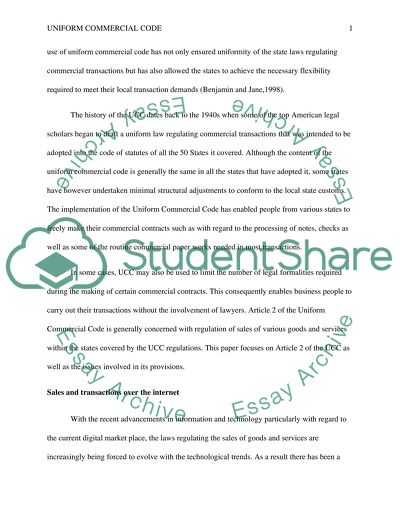Cite this document
(“Uniform Commercial Code: Article 2 Sales Transactions over the Term Paper”, n.d.)
Retrieved from https://studentshare.org/law/1450165-uniform-commercial-code-article
Retrieved from https://studentshare.org/law/1450165-uniform-commercial-code-article
(Uniform Commercial Code: Article 2 Sales Transactions over the Term Paper)
https://studentshare.org/law/1450165-uniform-commercial-code-article.
https://studentshare.org/law/1450165-uniform-commercial-code-article.
“Uniform Commercial Code: Article 2 Sales Transactions over the Term Paper”, n.d. https://studentshare.org/law/1450165-uniform-commercial-code-article.


